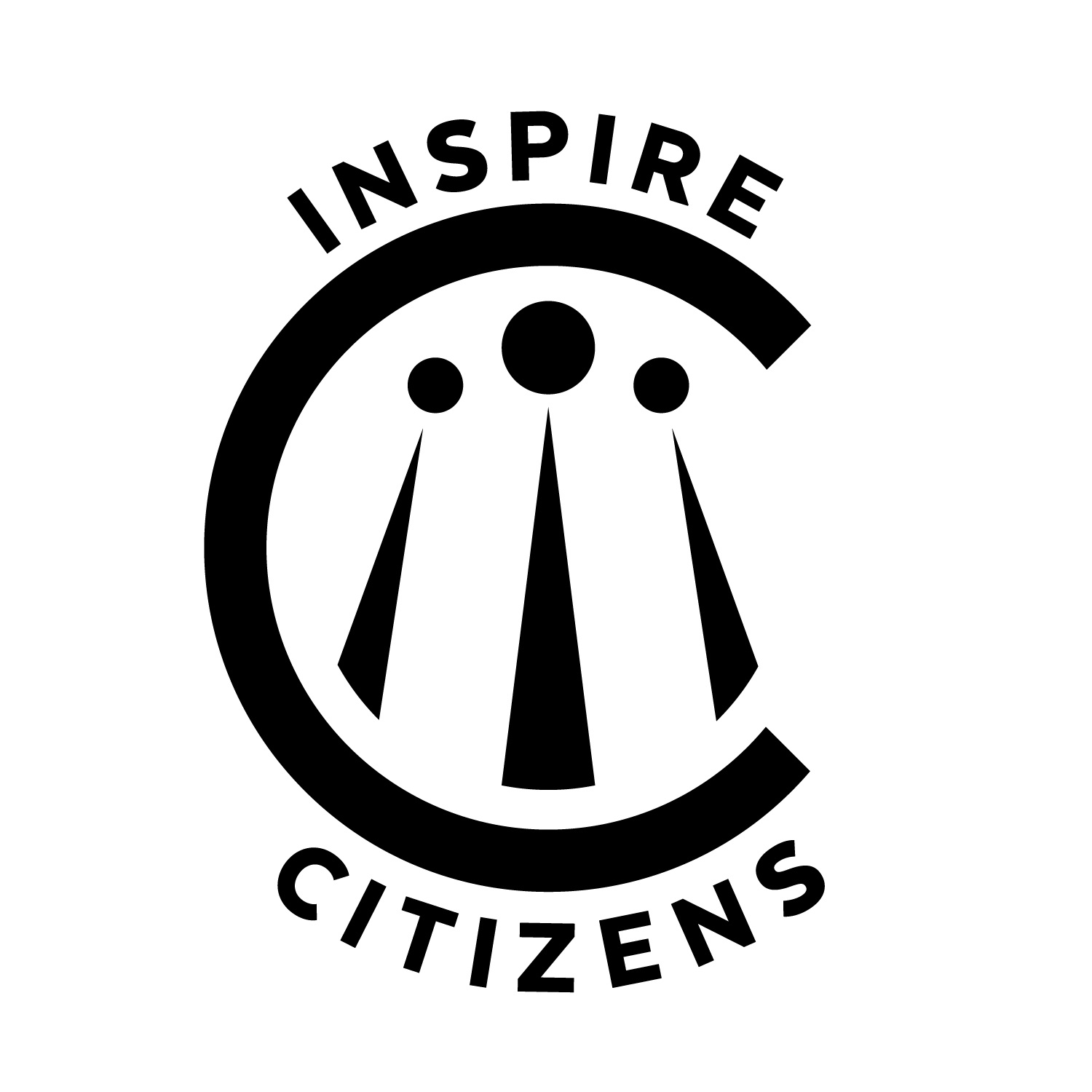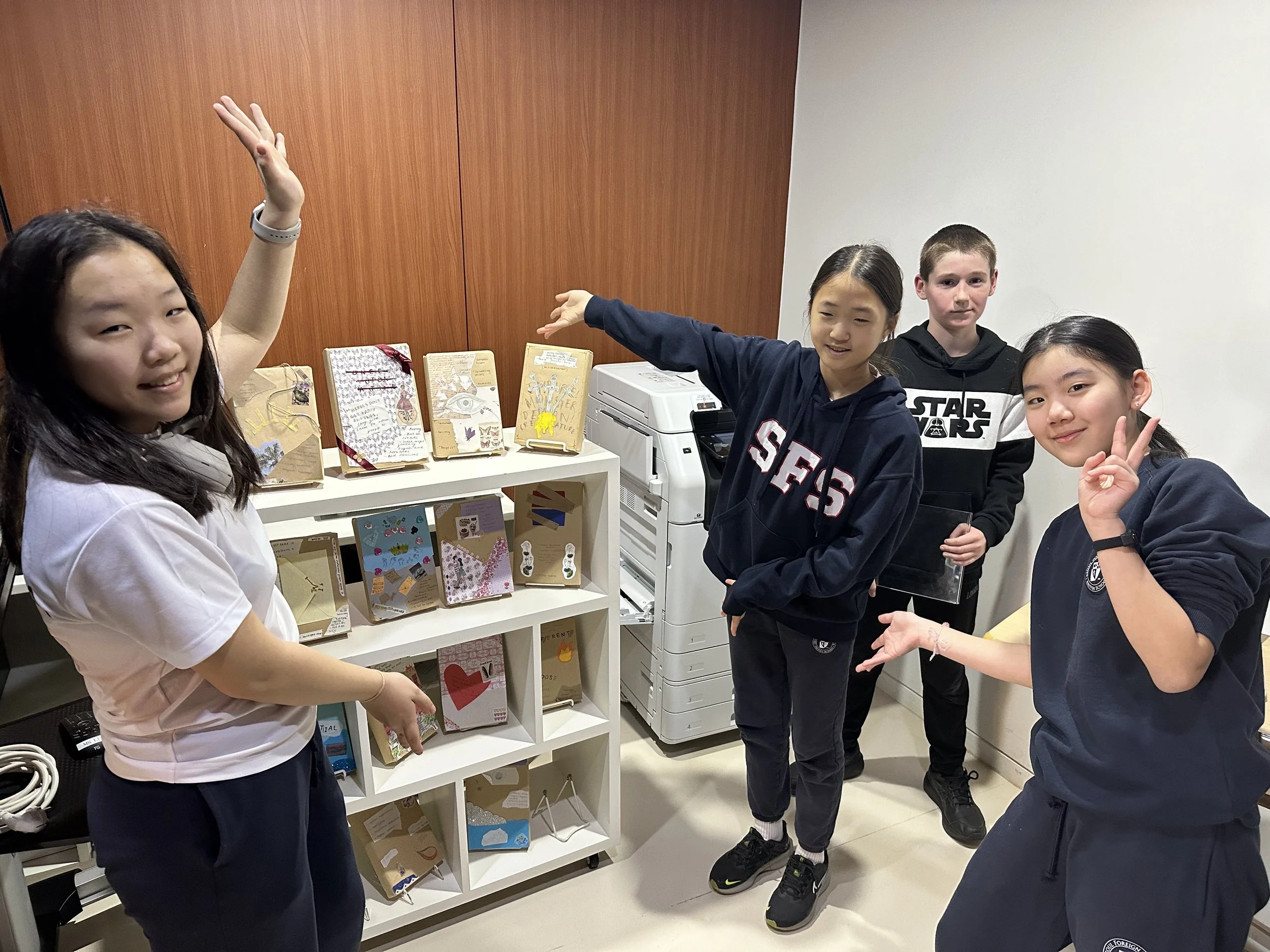Building a Culture of Service
Seoul Foreign British School allocates time in the schedule time to run a program that focuses on service [BSSL]. One group chose to use this time to promote well-being at school through reading, creating different initiatives such as 'A Date With A Book'.
At Seoul Foreign School's British School (SFS British School), the journey towards embedding a robust culture of service began six years ago when Principal Andrew (Andy) Freeman joined the institution.
A commitment to service has been part of the school for many years, and Andy brought a vision for a cohesive strategy. His team, including John Kett who joined SFS three years ago as the British School assistant principal, has worked to redefine and shape the approach to service learning, making it a core aspect of all learning for British School students.
SFS was founded 110 years ago, and the British School became part of the school’s academic offerings about 40 years ago. Initially, the curriculum was the British national curriculum and appealed to parents and students from European backgrounds. Now, the curriculum is more international in scope, and the school offers an option more grounded in community and service. Next year, the middle school students in the British School program will join the general MYP group at SFS, meaning that the British School program will focus on younger learners in the primary years. With personalized support, these students experience an exceptionally nurturing team and program.
Foundations and Core Values
The transformation towards a service learning curriculum at the SFS British School began with the establishment of six core values: courage, communication, collaboration, responsibility, respect, and reflection. These values form the bedrock of the school's culture and curriculum.
In his second year, Andy introduced three international curricular frameworks—the International Early Years Curriculum (IEYC), the International Primary Curriculum (IPC), and the International Middle Years Curriculum (IMYC)—to provide a global perspective and structured learning path to support the six core values.
Turning Points and the Influence of Inspire Citizens
A pivotal moment came when Aaron Moniz, co-founder of Inspire Citizens, collaborated with the SFS British School to integrate the UN's Sustainable Development Goals (SDGs) into their service learning vision. This partnership supported a move towards shifting the school's focus towards meaningful, community-driven service projects.
“We do a lot of thinking about mindsets for service, and how important it is to have connections with community partners and listen well to understand what authentic needs exist,” says Andy.
Aaron's involvement was crucial in helping the school frame their service learning within the broader context of global citizenship. He challenged the school community to consider what would happen if the SFS British School ceased to exist, asking “what impact would be felt in the local community”? This profound question helped the school refocus its service efforts to address genuine community needs, ensuring projects are both relevant and impactful.
Creating Structured Opportunities
One of the significant advancements was the introduction of the British School Social Leadership (BSSL) program for students aged 11-14. This program, developed over two years with Aaron's guidance, allows students to engage in service projects that align with their interests and the needs of the community. Teachers receive additional support to integrate these projects into the curriculum, ensuring that service learning is a regular part of the students' educational experience.
“Two years ago we had a schedule change, and we sat with Aaron and ideated about what to keep in the schedule and what to change,” reflects Andy. “We could see the value in having service time built into the schedule, and that’s when we created an opportunity for a teacher to lead the BSSL program in a block so all 11- to 14-year-old students could participate. Teachers are scheduled to be available during this block, too, which means everyone can be involved with service initiatives.”
Having BSSL time built into the schedule very six days has opened possibilities for guest speakers, as well. Six speakers came to the SFS British School during the 2023/24 school year, inspiring students with their stories of service and global citizenship.
“We have an alumnus who runs an orphanage in Seoul and they have come two or three times to talk in assemblies this year,” says Andy. “Another staff member runs an organization called Open Arms that supports local orphanages. She brings students from the orphanage to SFS and our kids run activities (like English and cooking and play activities), and this has had a deep impact on many students.”
Funding Student-Initiated Service Experiences
The implementation of structured fundraising opportunities, such as the Autumn Fair, ensures that financial resources are available to support student-led initiatives. This approach not only empowers students to plan and execute their projects but also teaches them valuable budgeting and project management skills.
The fair takes place each year over a two-week period in the fall season and it is completely student run by the 11-14 year olds at the British School. They organize activities for younger learners and invite students from younger grades to attend, play games, eat snacks and food, and have a fun time.
“The fair allows our 11-14 year olds to be of service to the younger students and reinforce how important it is to authenticate community needs in advance and make a plan for both the fair and how the funds will be used,” says John.
He adds that once funds have been raised through the fair, they go into a common account and students can request money to support service initiatives throughout the year. Students have a lot of leadership and autonomy in deciding how the funds are allocated, supporting the growth of student leadership skills.
Real-World Impact and Community Connections
The school's commitment to service is evident in its partnerships with local organizations. The Open Arms partnership is an example that offers hands-on involvement to foster empathy and a deep sense of community among all participants.
Additionally, partnerships with organizations like an anti-malaria foundation and Nanumi, a food service for people experiencing homelessness, provide students with diverse opportunities to serve and learn. These experiences are not just about giving back but also about understanding the root causes of various societal issues and the students’ roles in responding and acting.
Future Directions and Ongoing Conversations
As the SFS British School looks to the future, the focus is on making service an integral part of the primary school curriculum. Andy and John are exploring ways to intentionally link units of study to authentic service opportunities. The goal is to create a seamless transition for students as they move from primary to middle school, ensuring that service remains a cornerstone of their educational journey.
The school's vision is encapsulated in three guiding words: real, heart, and impact. These words reflect the school's commitment to making a tangible difference through service, driven by genuine empathy and a desire to create lasting change.
In conclusion, the culture of service at Seoul Foreign School British School is a testament to the power of intentional, values-driven education. Through the support and strategic vision provided by leaders like Andy, John, and Aaron, the school has cultivated an environment where service is not just an activity but a way of life.
This journey continues to inspire students, staff, and the broader community, reinforcing the belief that anyone with a heart for service can make a significant impact.
Photos below: Working with local organizations that support families/children in the community, SFS British School students host monthly activity evenings that engage children in games and life skills eg. cooking. These activities are planned during their weekly BSSL [British School Social Leadership] time.




